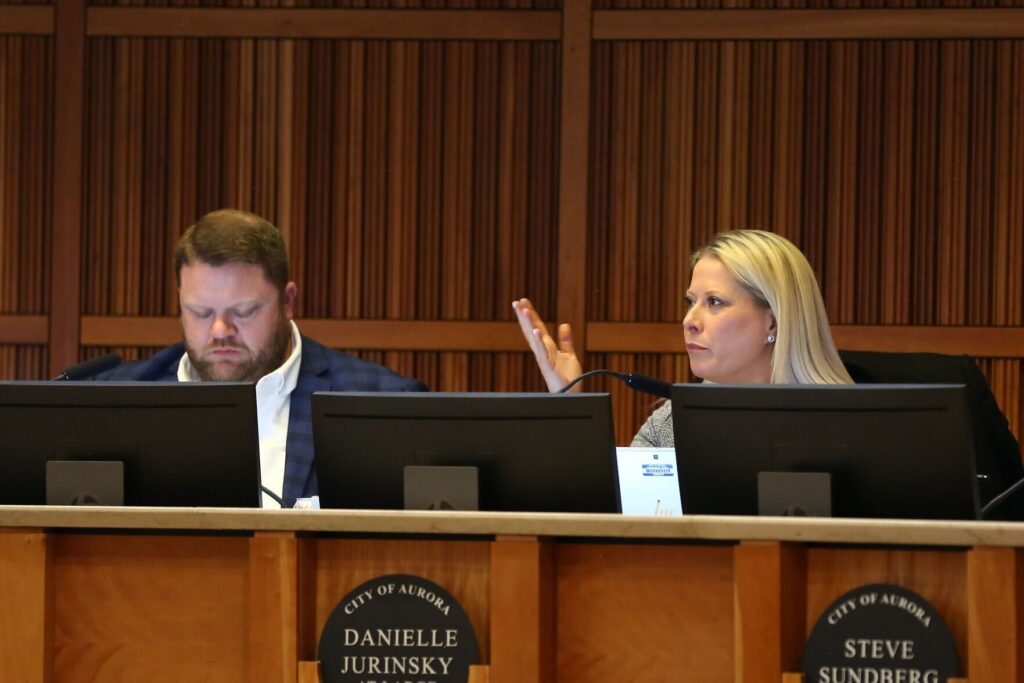Measure to ask Colorado voters to get rid of reading bills at length unlikely to reach the ballot box – or even the House floor

For a Republican House caucus already upset over how the 2022 session has gone, the last thing its members needed was a gas can on that fire.
They got it last Friday, when the upcoming schedule for the House State, Civic, Military & Veterans Committee was announced. It included a resolution intended to ask voters to eliminate the constitutional requirement tied to reading bills at length.
Republicans, who have been in the minority in the House for the past decade and for the last four years in the Senate, point to that provision as one of the few tools they have to get majority Democrats to the negotiating table. In the past several weeks, and more intensely in the past two days, they have waged a lengthy battle, including asking for dozens of bills to be read at length, with the intent of forcing majority Democrats to compromise on some of the session’s most controversial remaining bills.
The last anyone had heard about House Concurrent Resolution 1002 was when it was introduced in Jan. 28 – until late last week. That the resolution never came up before now is due in part to GAVEL, the constitutional amendment that requires all legislative measures to receive at least one hearing, rather than never seeing the light of day.
“We are here to work, to solve problems, to apply our best judgment, morals and compromise when we need to, and keep the laws fitting the challenges our constituents are facing,” sponsor Rep. Mike Weissman, D-Aurora, said, adding that’s what HCR 1002 is about.
He gave the committee a history lesson on the issue, noting the language on reading was inserted in the state Constitution in 1877. But technology has changed vastly since then, with the advent of typewriters, copy machines, computers and now the Internet, he said. He also noted that, in 1950, the General Assembly referred a measure to the ballot that proposed changes, including shortening the provision to reading the title instead of the full bill.
Weissman then skipped to 2022, noting that almost everything lawmakers need can be accessed via the Internet, along with a state-issued laptop. Technology, as it relates to the legislative process – and the public’s ability to access that information – has moved very far, he said.
He also said he had been contacted by constituents who were monitoring a bill they had worked on for two years, and asked about the delays taking place.
People, he said, deserve the question on “whether they want to pay the cost” that some are paying with delays on legislation caused by reading bills at length.
But Weissman’s history lesson left out one very important fact: a 2019 lawsuit, filed by Senate Republicans against Senate Democrats, over how a computer program read a 2,023-page bill. That reading, done by a bank of computers and at a speed of about 600 words per minute, rendered the reading unintelligible. A Denver District Court judge ruled in favor of the Republicans and required future readings to be at a more understandable speed. Democrats appealed to the the Colorado Supreme Court, which largely ruled in favor of Republicans last year.
Rep. Rod Bockenfeld, R-Watkins, said he found the resolution “insulting.”
This is “tyranny of the majority,” Bockenfeld said, calling it a “one-party rule” of 41-24.
“The majority in this House has rolled the minority,” he said, arguing Republicans represent almost a third of the state. Bockenfeld said Colorado’s founding fathers provided that law “to slow down the process so you can have negotiations and make sense out of bills, instead of rolling people 41-24 time and time again.”
Rep. Ron Hanks, R-Canon City, called the measure a demonstration of “the arrogance of power.”
Democrats defended the resolution, saying it will give the public a chance to weigh in on the question.
While noting that the origins of reading at length arose in part to help those who could not read, or Latinos who could not read English, Rep. Alex Valdez, D-Denver, said he took issue with the claim that people are not given a choice on the matter.
“This would give people a choice to continue it,” he said of the measure.
Bockenfeld predicted the resolution would die on a 41-24 vote. A concurrent resolution needs a two-thirds majority, meaning at least three Republicans would have to cross the aisle to support it – an unlikely scenario – assuming all the chamber Democrats voted in favor.
Multiple sources said HCR 1002 will not be heard on second reading in the House, and bringing the bill to the floor would give House Republicans another fight, akin to – according to one observer – to throwing another gas can on an already raging fire.














